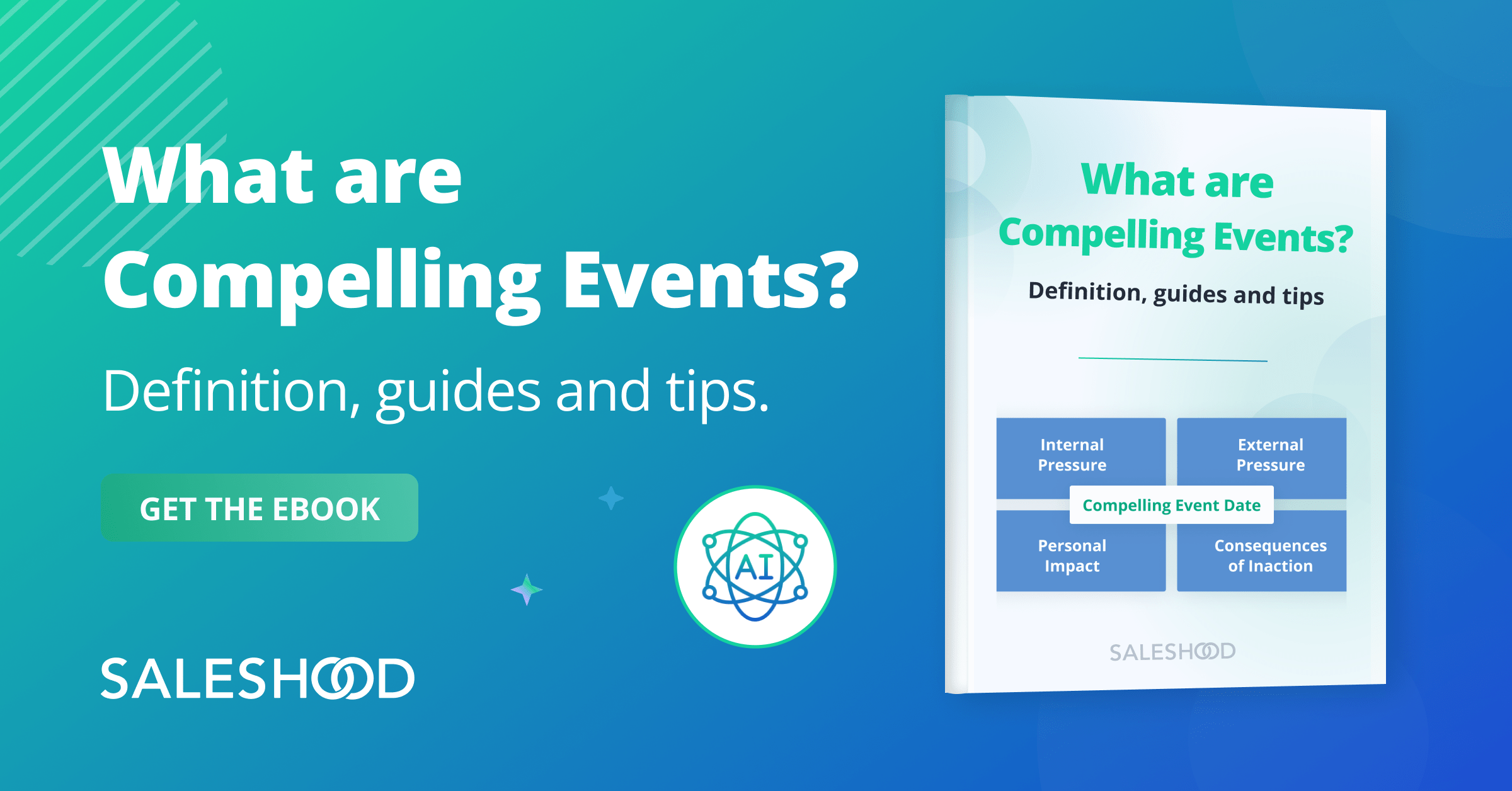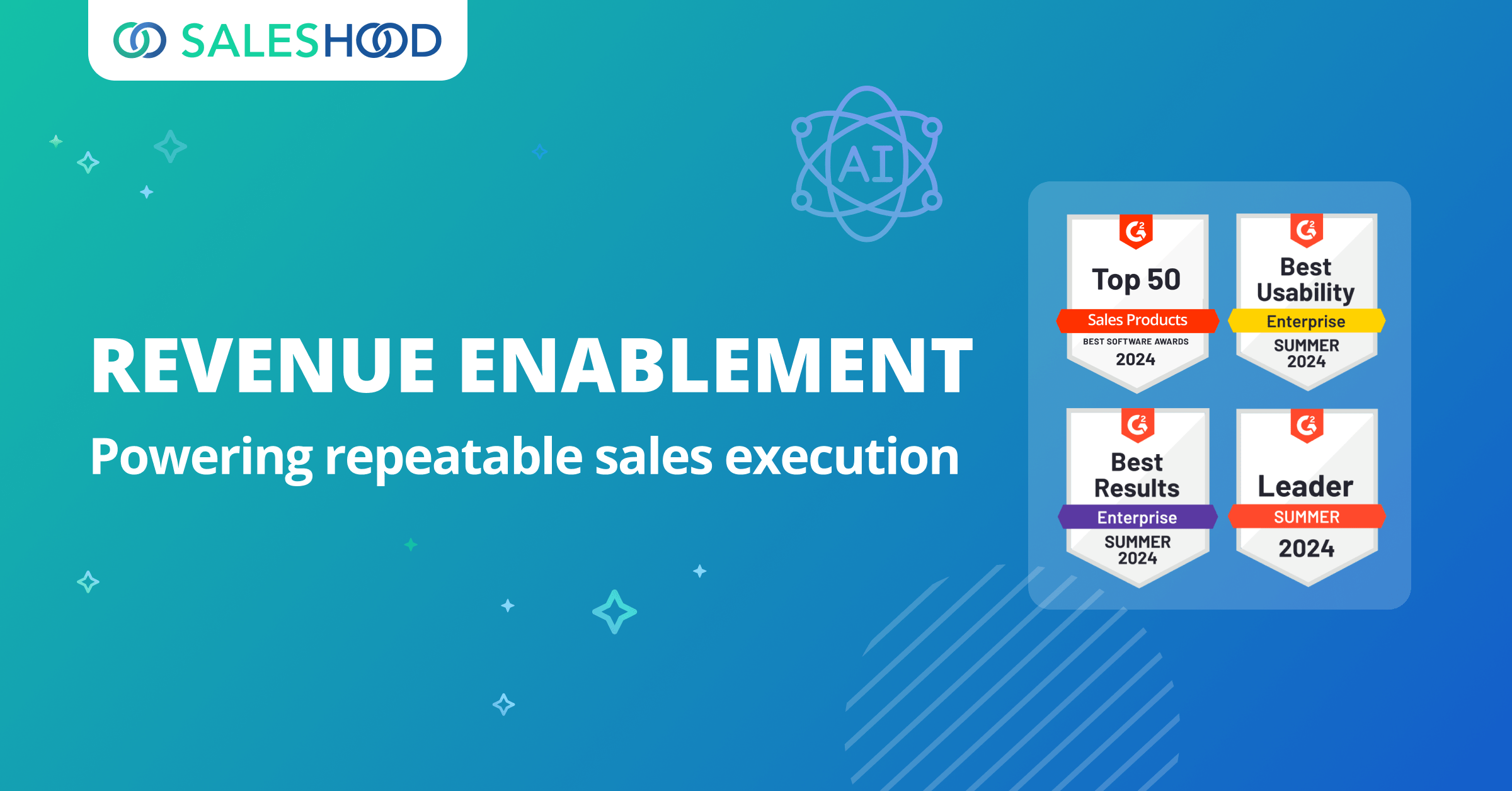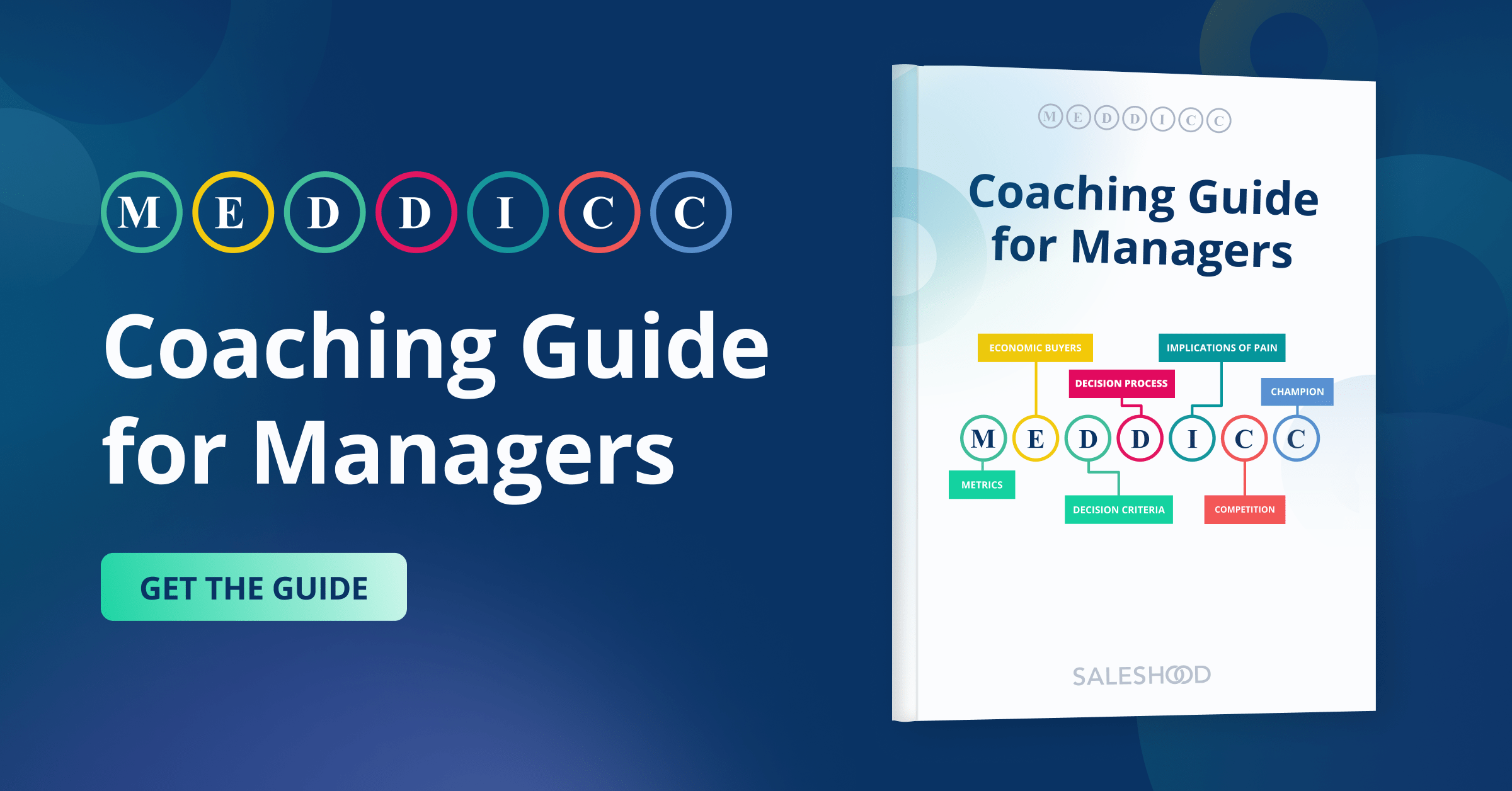The buyer’s journey isn’t always a linear path. Communicating with stakeholders and shifts in priorities can stand in the way of a streamlined process. It can also lengthen the sales cycle. A Mutual Action Plan is proven to improve the experience for your sales team and prospective customers.
When we use mutual plans in our sales pursuits to sell with champions and to validate next steps with economic buyers, magic happens. We increase our win-rates, deal certainty and forecast accuracy. Our champion’s willingness to co-create and co-own a Mutual Action Plan is the ultimate leading indicator that our deals will close.
In this blog, we’ll cover what Mutual Action Plans are and give you steps to implement them.
What is a Mutual Action Plan?
A Mutual Action Plan (MAP) is an agreed set of action items co-created and co-owned by a buyer and seller to achieve a defined customer goal and written in customer’s own words. A mutual plan is a set of steps required to get a project started and make a project successful. It’s about your customer’s desired outcome.
A Mutual Action Plan documents the steps your customers need to complete to make a purchase decision. Mutual Action Plans are usually co-created and presented in a customer’s language. Establishing collaborative and transparent relationships can make all the difference in your sales success. Mutual Action Plans offer a strategic approach to do this effectively and efficiently.
Here’s an overview video of interactive and collaborative Mutual Actions Plans in Digital Sales Rooms.
A Mutual Action Plan outlines shared objectives and responsibilities for the selling and buying teams. This documented strategy ensures all stakeholders operate from the same playbook. Mutual Action Plans provides better deal qualification, heightened deal urgency. improved buyer/seller alignment, and overall sales process transparency.
These Mutual Success Plans bridge a gap, connecting sellers and buyers through open communication and mutual understanding. You bring everyone together to define goals and ownership upfront. This decreases the chances of miscommunication.
You will be perceived as a more professional salesperson and will be appreciated by your customers even more. You’re going to add transparency in the buying process that you’ve never experienced before. You’re also going to align yourself with what your customers are buying.
One point to make is that Mutual Action Plans have different names. Here are a few of them:
- Mutual Success plan
- Mutual Close Plan / Close Plan
- Joint Action plan (JAP)
- Go-Live Plan
- Project (insert name) Plan
Regardless of what you call it, the key is to ensure you’re using your customer’s language and modeling their decision process and compelling event – not your own.
The benefits for sellers and buyers
Implementing Mutual Action Plans benefits both sales teams and customers. Here’s a closer look at the benefits.
For sales teams
-
- Forecasting: Shared visibility into the buying process powers better pipeline management.
- Accountability: Transparency on action items leaves no room for the ball to drop at any stage of the deal.
- Relationships: Collaborative planning improves relationships and trust with the buyers.
- Insight: Connecting with buyers in this way provides intel on their decision-making process.
A Mutual Action Plan lays out the steps required to complete a transaction. You also help customers with a well-documented success roadmap based on their decision process and decision criteria.
For buyers
-
- Clarity: This level of collaboration boosts clarity about your solution’s value.
- Confidence: Co-authoring the plan creates trust in the seller as a true partner.
- Streamlined approvals: A defined roadmap expedites internal decision-making and leads to shorter sales cycles.
- Better experience: Mutually invested effort shows that the seller prioritizes their customers.
When customers have this kind of communication and clarity from reps, they’re more likely to feel like all parties are invested in a positive outcome, not just a closed deal.
Breaking down the parts of a Mutual Action Plan
An effective Mutual Action Plan has multiple parts. Take a look at all the components and factors.

Stakeholders
Before you start, identify all stakeholders. These are the executives and influencers you need buy-in from. Understanding their perspectives and expectations is important. It paves the way to building trust and closing the deal.
There’s always a reason why a prospective customer may not be “ready yet.” But one way you can solve that is finding appropriate stakeholders to get all these actions done and make the project a success.
The outcome of co-creating a customer success plan is that you’ll drive urgency and transparency across every sales campaign. This tool and sales practice will become the ultimate qualifier for you. However, you can only do this when you know who the right stakeholders are first.
Path mapping
Every B2B buyers’ journey is unique. You need to map their decision-making process. This means digging into roadblocks and approval protocols. This customer-specific visibility allows you to tailor your plan for the best outcome.
You know what it takes to deliver success and close business. Your plan should represent a combination of your customer’s decision-making process, evaluation criteria, and your sales process.
Success metrics
Establish the success and revenue targets. These metrics align both teams on their objectives. Be sure to hear out all the stakeholders at this stage. That way, you know what they care about most.
For example, tell your customers what outcomes to expect by implementing your solution. Consider closing your mutual action plan by giving customers realistic timelines and ideas to track their progress.
Resources
Get the tools and budget you need to execute the plan. Then establish communication channels. You’ll need to figure this out internally and with the buyer. This will help keep everyone on the same page.
You may also consider giving your customers insight into what resources and executive support will be necessary on their side. When you show this kind of commitment to your customers’ outcomes, you make getting deals done a win-win.
6 tips to building a successful, action-oriented Mutual Action Plan
Creating an impactful Mutual Close Plan is a process. Building rapport with the buying team is important. Sales professionals should focus on open and transparent communication. That means actively listening to the buyer’s concerns and requirements. Engagement supports the collaborative environment you need to develop the Mutual Action Plan.
Follow these steps to co-develop plans with champions that drive deal urgency, increases win-rates and improves forecast accuracy.
-
Mention the MAP early and often in a sales process.
It’s a good practice, once a champion is identified or suspected, to introduce the concept of a Mutual Action Plan. Introduce the Mutual Action Plan early in the sales process. A top performing sales professional will guide their prospective customers through a mutual action planning process that maps to their buying process. It works. If the champion agrees to co-creating a Mutual Action Plan, then that is great deal insight. If they don’t, then that’s good deal insight too. It could be this person isn’t really the champion or maybe the deal isn’t ready yet for that kind of buyer-seller collaboration. Salespeople should come from a consultative mindset and they should help their prospective customer solve their issues and implement a winning solution.
Building rapport with the buying team is important. Sales professionals should focus on open and transparent communication. That means actively listening to the buyer’s concerns and requirements. Engagement supports the collaborative environment you need to develop the Mutual Action Plan.
2. Use customer’s ideal go-live date to work backwards and create milestones.
A successful salesperson will start by identifying the customer’s ideal go-live date and work backwards to map out the key milestones required to achieve it. They will co-create a Mutual Action Plan (MAP) with the customer, ensuring alignment on each step—such as solution evaluation, contract finalization, and implementation timelines—while creating a sense of urgency to meet critical deadlines. By tying each action to the go-live date, the salesperson highlights the importance of timely decision-making, driving urgency to close the deal. This collaborative approach ensures both parties are accountable and focused on getting the deal done in time for the customer to achieve their goals.
3. Tailor the MAP using the customer’s own words and priorities.
Co-creating the Mutual Action Plan with your customer means you’re helping them document their action and owners in the context of their business, priorities, culture and decision-making process. All the actions should be in the customer’s language and their verbiage. They should hear their voice reflected in the plan.
4. Update the MAP consistently to reflect progress and keep it current.
The buyer and sellers teams should co-create and co-develop the Mutual Action Plan together. This process involves defining the specific objectives. There should be clear checkpoints for each stage of the sales process. All the actions should be in the customer’s language and their verbiage. They should hear their voice reflected in the plan. Salespeople shouldn’t own all actions of a Mutual Action Plan. Action items on the plan go beyond signing the PO.
5. Align the MAP with the economic buyer and key influencers to verify and validate next steps.
The Mutual Action Plan becomes the central document used to align teams and deliver on the customer’s ideal solution. It’s important to verify, reverify and validate the Mutual Action Plan with as many influencers as possible, including the economic buyer and executive sponsors. Be curious. When you speak with your champion, ask questions about what’s changed since your last conversation. It’s better to know sooner than later if dates or priorities shift.
6. Leverage MAPs to create urgency and drive decision-making, ensuring mutual accountability for success.
With SalesHood, you can leverage the Mutual Action Plan (MAP) to create urgency by using real-time tracking and visibility into progress. By updating key milestones and deadlines in the platform, both the customer and your team stay aligned on what needs to be done to meet the go-live date. SalesHood’s collaborative tools ensure that everyone is held accountable, driving timely decision-making and ensuring no steps are overlooked. The transparency and shared ownership foster urgency and keep the deal on track for success.
If a customer pushes back and says they aren’t ready to co-create and discuss a mutual plan, don’t be discouraged. There’s a reason why they’re pushing back. Be curious and find out why they aren’t ready. Maybe the champion isn’t really your champion? Ask yourself, what do you we still need to do in sales process? If your champion isn’t ready to “red-line” a mutual plan they are most likely not ready to “red-line” a commercial agreement. As you look at your pipeline, as yourself, how are you doing co-creating mutual plans with your champions and economic buyers?
Implementing a Mutual Action Plan
Once you develop the Mutual Action Plan, follow these tips to implement it successfully.
1. Establish clear timelines
The plan should clearly outline timelines and deadlines for each milestone. This way, both teams stay on track and accountable. Having a road map in place will help you identify and address potential delays.
Ask: What is realistic with everybody that has so much going on? Is there a particular milestone event or action that impacts another one? As you do this orchestration in a collaborative way, these are things you must understand.
2. Assign milestone tasks and responsibilities
Each task and responsibility should be assigned to specific individuals or teams. This ensures clear ownership and accountability. It also helps streamline the execution of the plan and minimizes confusion.
3. Do regular check-ins
Regular check-ins and progress updates are essential. This allows you to maintain transparency and ensure both teams are aligned. These check-ins provide opportunities to make any adjustments.
4. Mitigate risks
Even with careful planning, challenges and risks may come up during the implementation phase. A well-designed mutual close plan should include contingencies. Have strategies for mitigating these risks, like escalation paths.
5. Evaluate effectiveness
Measuring the impact on revenue and performance will show you ways you can improve your mutual action plans in the future. Track key metrics like the length of the sales cycle. Also, ask your feedback from both the sales team and your customers.
6. Mutually agree on compelling event milestones
A great way to drive deal urgency is to uncover a customer’s compelling event (or co-create one) and then track the progress and sequence of events leading up to that date. Remember a compelling event is a time-sensitive response to an internal or external business pressure that drives action within a time period with consequences of inaction.
Watch this short video explaining what is and what is not a compelling event.
3 common pitfalls in Mutual Action Plans
Mutual action plans come with many benefits. But they also have their own set of challenges. These are pitfalls to be aware of and ways to avoid them.
1. Lengthy approval workflows
Complex company structures can slow down the decision-making process. This can wreak havoc on the timeline of your mutual close plan. Addressing these challenges requires frequent communication. It also requires proactive planning.
2. Lack of alignment
Mutual close plans are collaborative, but misalignments can still happen. This can lead to expectations not being met or even a deal failing to close. A shared commitment to the plan’s objectives is essential. This is why it’s a good idea to introduce the idea of a mutual action plan as early as possible. You can get the customer and all stakeholders on board.
3. Inefficient communication tools
Ineffective communication tools or limited access to stakeholders can stop the successful implementation of a mutual action plan. Using modern communication platforms and keeping everyone in the loop is essential.
Mutual Action Plan Checklist
Here’s a mutual close plan checklist to share with your teams and use for training, onboarding, coaching and buyer engagement.
-
- Share mutual close plans with champion early in the buyer’s journey and sales cycle to get their buy-in and participation. Gain agreement on the process.
- Co-create the mutual close plan with champions. Engaging champions to collaborate on a mutual close plan is a great qualifier too.
- Coach champions to share the mutual close plan with key decision makers and influencers.
- Identify the economic sponsor meaning the person has the power to approve or veto the decision to proceed.
- Include building the business case milestones to ensure value is being documented.
- Identify the customer budgeting and procurement process and decision making process milestones along with the resources required to make happen.
- Identify the technical evaluation and review process. Know who needs to review and approve from the IT team. Ensure the IT project is above the line and budgeted.
- If board approval is required, find out when the next board meeting is.
- Ensure customer reference meetings are identified and scheduled.
- Be very granular about sales process and buying process milestones. Included owners on each item. Since the mutual close plan is co-created ownership of the action items should include members of the selling and buying teams.
- Upload mutual close plans to the opportunity in your CRM and Salesforce system so sales teams and executives have visibility.
- Review mutual plans with champions often.
- Coach managers to reinforce in 1:1s and team forecast calls.
Bottom line: Pave the path to success with mutual action plans
Here are three reasons you should take a serious look at empowering your teams to engage buyers with Mutual Action Plans within Digital Sales Rooms:
- Differentiate how your team sells. 2X win rates.
- Up-level sales execution. Standardize consultative selling.
- Drive deal urgency. Create a sequence of events with buyers.
Mutual Action Plans will move the needle to increase deal win rates and predictable revenue forecasts. Want to empower your teams with the latest best practices and resources? SalesHood can help. Schedule a demo today.
Listen to the this blog converted into a podcast style conversation. Check it out.



